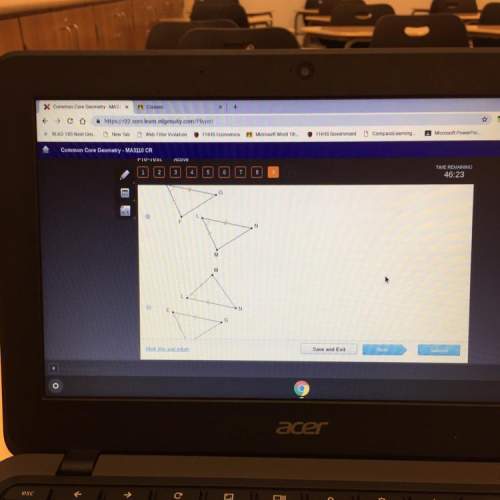
Mathematics, 15.04.2020 00:15 lostcharmedone01
Let f be a function defined for t ≥ 0. Then the integral ℒ{f(t)} = [infinity] e−t f(t) dt 0 is said to be the Laplace transform of f, provided that the integral converges. to find ℒ{f(t)}. (Write your answer as a function of s.) f(t) = t sin(t)

Answers: 1


Another question on Mathematics

Mathematics, 21.06.2019 17:00
Which of the symbols correctly relates the two numbers below check all that apply 6? 6
Answers: 2

Mathematics, 21.06.2019 17:20
Read the equations in the table below. then drag a description of the situation and a table to represent each equation. indicate whether each of the relationships is proportional or non-proportional.
Answers: 1

Mathematics, 21.06.2019 17:30
Mrs. morton has a special reward system for her class. when all her students behave well, she rewards them by putting 3 marbles into a marble jar. when the jar has 100 or more marbles, the students have a party. right now, the the jar has 24 marbles. how could mrs. morton reward the class in order for the students to have a party?
Answers: 3

Mathematics, 21.06.2019 18:40
Valentina is subtracting from . she finds the lcd to be 15y2. what is valentina's next step?
Answers: 2
You know the right answer?
Let f be a function defined for t ≥ 0. Then the integral ℒ{f(t)} = [infinity] e−t f(t) dt 0 is said...
Questions

English, 22.10.2020 03:01

Chemistry, 22.10.2020 03:01

History, 22.10.2020 03:01

Mathematics, 22.10.2020 03:01






Mathematics, 22.10.2020 03:01


Mathematics, 22.10.2020 03:01


English, 22.10.2020 03:01


Mathematics, 22.10.2020 03:01


Mathematics, 22.10.2020 03:01

English, 22.10.2020 03:01





